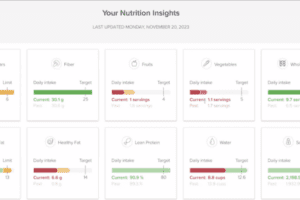The following is a guest article by Shawn Henners, Electronic Business Process Manager, Montgomery County Hospital District
The Montgomery County Hospital District (MCHD) is a local government agency that coordinates indigent healthcare, and provides 9-1-1 emergency medical services and public health services for Montgomery County, Texas — our mission is to care for the indigent while ensuring long-term stability through fund development.
Though the agency serves more than a half million people, our process automation department is a two-person team. This small but mighty enterprise is responsible for ensuring behind-the-scenes processes run smoothly and efficiently, enabling MCHD to fulfill its mission.
The organization’s transformation story begins four years ago when MCHD created its first full-time position dedicated to automating processes. At the time, we were just uncovering the potential for digitization and automation, and few people internally supported those efforts. Today, however, those automations are an integral part of how MCHD operates.
Despite Skeptics, MCHD’s Initial Transformative Steps Proved Impactful
We used our initial technology investment to digitally transform tedious processes. The agency deployed Laserfiche to automate various workflows, such as filling in demographic information from the payroll system for any form employees had to fill out. Though automating a single step seems like a minor success, removing this tedious, repetitive step was the proverbial stone toss in the water, creating a widespread, positive ripple effect for the agency.
Employees noted how much time automating and digitizing incident reports saved them. Managers and supervisors marveled at how much more convenient it became to search the newly designed employee records repository. Before the transformation, managers kept paper copies of every form they submitted to HR. The digital tool quickly became the preferred method for all employees.
Existing Automation Allowed Agency to Thrive During Crisis
When the pandemic struck, it changed the agency’s operations almost overnight, as much of our workforce turned to work-from-home arrangements. MCHD needed new digital processes for information gathering and sharing.
Using the same technology that turned incident reporting into a model process, our team implemented or redesigned a host of processes in 2020 and into 2021 to contend with the ongoing effects of the pandemic.
Automating and digitizing indigent care program applications improved accessibility for the entire community, who could access the appropriate materials remotely. Digitizing patient care records empowered MCHD to move from multiple systems to a centralized repository, leading to more efficient records management with proper retention schedules and regulatory compliance. The new technology backbone also helped the agency better manage and coordinate resources, from employee uniforms and field devices to inventory management on ambulances, EMS stations, and public health clinics.
Transforming workflows used by every single department drastically improved internal and public-facing processes, helping MCHD save nearly 8,000 hours of work and at least $250,000 over the course of the year. Beyond the pandemic, these efforts helped to modernize our operations and continue to support staff and those we serve as we look to the future. The technology and systems we leveraged before and during the pandemic continue to provide value by enabling us to continuously optimize and transform legacy processes.
Pandemic Success Demonstrates Importance of Proactive Transformation
If the pandemic had hit a few months sooner, MCHD would have had to overcome chaos trying to accommodate remote operations and services rendered. But because the agency had already transformed some of its processes before the onset of the disruption, it was able to quickly roll out electronic and automated forms for a variety of new use cases. The departments that were skeptical of the initial automation initiative became cheerleaders of the approach when it scaled seamlessly to help the agency navigate a challenging moment.
MCHD’s initiative illustrates how crucial it is for organizations of any stripe to get ahead of their digital transformations during times of relative stability. Digital transformations must be a proactive rather than a reactive endeavor if organizations are to reap the benefits of the enhancements.
 About Shawn Henners
About Shawn Henners
Shawn Henners, MBA, CPHRM, is the Electronic Business Process Manager at Montgomery County Hospital District (MCHD) in Conroe, Texas. In her current role, she oversees and administers MCHD’s Laserfiche system, which gives her the opportunity to learn something new every day. She is passionate about continuous process improvement and knows that the best solutions come when all stakeholders understand the problem and engage in finding the solution that works best for the organization. Shawn’s professional experience includes healthcare risk management, emergency management, occupational health and safety, and public health preparedness. She holds a BA in International Relations from American University and an MBA (Healthcare Management) from West Texas A&M University.













